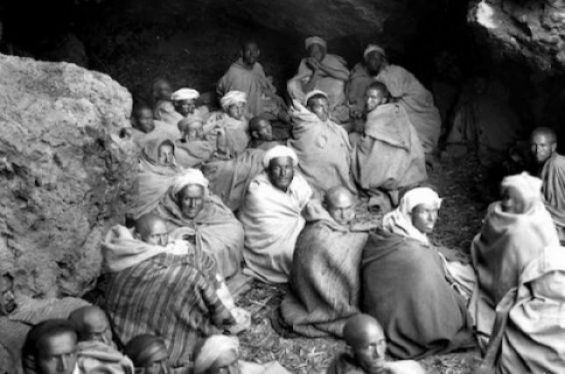Moroccans have been familiar with the concept of isolation, known nowadays as «quarantine», for several centuries. Indeed, throughout its millennial history, Morocco has faced several natural disasters, which have threatened its stability and public health due to a series of epidemics such as the plague.
In the 18th century, when Morocco felt helpless due to the high number of infections. Several of its nationals who had visited the European colonies were mentioning the word «quarantine» : the preventive measure that constitutes of isolating suspected infections in order to «avoid the spread of epidemics». And thus it was first implemented.
Morocco and the concept of quarantine
In his book «History of epidemics and famines in Morocco in the 18th and 19th centuries», Mohamed Al-Amin Al Bazzaz recalls how these Moroccans spoke of the efficiency of quarantining people in the countries they visited. «They had then described what a quarantine is and knew about it before it was even applied by the Health Council», he wrote.
For his part, the Moroccan ambassador Mohamed Ben Othman Al Meknassi, sent by Alawite sultan Mohammed III, referred in his book «Al Exir fi Fikak Al Assir», to quarantine during his trip to Spain and stopover in Ceuta in 1799.
«Visitors must be locked down in a place for 40 days, without leaving it», he explained, adding that even those responsible for bringing them food were not allowed to touch them. Mohamed Al-Amin Al Bazzaz believed that the measure was a «new phenomenon that Moroccans had not experienced at the time».
Fifteen years later, Moroccan historian Abu al-Qasim Ziyani highlighted in his book «Attarjamana Al Koubra», health measures he witnessed in Tunisia. Returning from his third voyage in 1794, he said that the ship which transported him, with a number of pilgrims, Turkish passengers and Christians, had been banned from docking in the port of Tunis. Travelers were then forced to do a «20-day quarantine». He even claimed that the measure was «contrary to Islamic law».
Isolation in times of plague
Towards the latter years of the 18th century, the plague reached Algeria and Tunisia, which pushed the Alawite sultan Mohamed ben Abdellah to take a series of preventive measures. He ordered the creation of a military zone at the eastern borders to protect his kingdom from the epidemic, recalled the book «History of epidemics and famines in Morocco in the 18th and 19th centuries».
By 1792, the consulates in Tangier started implementing preventive health measures on the seafront. In 1793, they even succeeded in obtaining the approval of Moulay Slimane to impose a quarantine on Algeria which extended from June to October. In July 1797, the same services had obtained a royal Dahir which imposed quarantine on all ships coming from Oran and suspended all land transport at the eastern borders of the country. Thanks to these measures, Morocco had temporarily avoided the plague.
But in 1798, the epidemic managed to reach Morocco through pilgrims returning from the Middle East. A campaign by the Sultan to the south to subdue the regions of Abda and Safi, at a time when the plague was raging in Fez and Meknes, contributed to the spread of the disease. As a result, his soldiers had brought the epidemic to the southern provinces.
«The sultan's army transmitted the infection from Fez to Rabat and then to the rest of the Atlantic plains», the British consul in Tangier wrote in a letter.
Because of these factors, the epidemic had affected a large geographic area, spreading for the first time in the Sebou basin between April and May 1799 before reaching the Chaouia, Doukkala, Abda and El Haouz regions in June and July, then Souss in August-September.
Quarantine considered «haram» by the ulama
Despite its advantages in the fight against infectious diseases, Moroccans had created a whole debate on quarantine, and most of them argued that it had not been «the work of God», considering it as «prohibited by Islamic law».
In Al-Bazzaz's book, he reports the opinion of Algerian Sheikh Abou Hamid Al-Arabi Al-Musharrafi, who arrived in Egypt on his way to Hajj and had to be quarantined in January 1841. «We do not die until God decides so», he argued, referring to the measure.
In the second half of the 19th century, the quarantine question became of great concern for Moroccans, in particular with its growing recourse against Moroccan sailors. Thus, Moroccan historian and jurist Ahmed ben Khaled Naciri was one of those who preached banning the measure.
In his famous essay «Al Isstiqssa», he said that «the advantages of this measure are not proven as its drawbacks». He added that this isolation «threatened not only the financial interests of the people, but also their religious beliefs».
The ulema of the Maghreb region then agreed to adopt a rigid point of view against quarantine, expressing their opposition to this measure. Some of them, as part of their struggle, had resorted to the use of fatwas which shaped Moroccan public opinion.
In his book, Mohamed El-Amine El-Bazzaz thus reports how «enlightened» proposals for the health security of Moroccans, emanating from certain officials «imbued with the benefits of European civilization» collided at the time with those of ministers, «intellectually-challenged» writers and ulama. They believed, according to the author, that «what is valid in the countries of Christians should not be applied in the land of Islam».
And when the Sultan's representative in Tangier, Mohamed Bergach, agreed in 1878 to impose confinement measures on Tangier to protect it from the cholera that had appeared in Fez and Meknes, Sultan Hassan I expressed his wrath against his representative in a message. The Sultan even reminded him that «this practice» was «prohibited in Islam», accusing him of having listened to «foreign consul».
This is how the ulemas in Morocco in the 18th and 19th centuries had been an obstacle to the fact that Morocco benefited from European experience in quarantine and isolation.





 chargement...
chargement...













